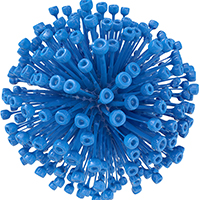Aiming to Defeat HIV
 |
HIV researchers are becoming increasingly bold about using the "cure" word in reference to HIV/AIDS—even though the "Berlin patient," whose HIV cleared after a stem cell transplant, remains a singular event.
Although many patients taking antiretrovirals have achieved "undetectable" viral loads, a true cure has remained elusive.
Research to develop HIV cures and vaccines got a boost recently, however, when the NIH awarded a $35.6 million, five-year grant to an Emory-led group. Investigators in the Emory Consortium for Innovative AIDS Research in Nonhuman Primates plan to refine existing "shock and kill" approaches that seek to eliminate the virus from latent reservoirs in people who are infected with HIV (or SIV, in nonhuman primates), enhancing the possibility of a cure.
Emory scientists also are working on developing advanced vaccines that provide sustained protection from retroviral infection.—Quinn Eastman
Going Viral
HIV is constantly mutating.
That means the virus can, in effect, customize itself so that it is less visible to someone’s immune system. If a newly HIV-infected person is fighting a virus that has already "pre-adapted" to their immune system, that has a strong influence on how quickly that person will progress to AIDS, found a team of researchers led by scientists from Emory, Microsoft Research, and the University of Alabama at Birmingham.
The results have implications for HIV vaccine design and how future vaccine studies should be conducted.





